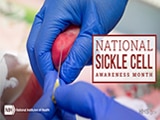The Importance of Research Ethics to Native Communities

Deana Around Him (left) and Sara Hull (right).
Photo Credit: Sarah Cline Pytalski, NCAI Policy Research Center.
“Aha” moments were among the unexpected outcomes of the Institutional Review Board (IRB) training program for American Indians and Alaska Natives at the National Institutes of Health (NIH). IRBs are committees, at NIH and other research institutions, which help ensure the welfare of people who participate in certain types of federally regulated research. To qualify for NIH grants, researchers must comply with applicable IRB requirements.
For Deana Around Him, DrPH, a citizen of the Cherokee Nation who participated in the training, the aha moment came when she reviewed the recent final rule for the Federal Policy for the Protection of Human Subjects, also known as the Common Rule. The new Common Rule revisions modernize, simplify, and enhance oversight for human subjects research in the United States. Under the Common Rule, the IRB is intended to review and approve research involving human subjects, protecting their rights and welfare.
“I saw that comments we made on the Common Rule revisions had an impact,” Dr. Around Him said. “Many aspects of the Common Rule had been focused on protecting the individual, but there were no community protections. We made sure that, on behalf of the tribes, the revisions addressed community protections, community needs and community benefits. We did this through the addition of language that acknowledges tribal authority over research activities.”
“Research is an important tool for improving the health and well-being of American Indian and Alaska Native peoples,” Dr. Around Him said. “When discussions of research ethics are inclusive of tribal perspectives and when research policies, such as the Common Rule, acknowledge tribal authority to steward research on their lands and with their peoples, the likelihood of conducting research in a way that is meaningful, ethical, and appropriate increases.”
Sara Hull, Ph.D., had a similar aha moment soon after successfully recruiting the first two Indian participants to the NIH IRB training program in 2014. Dr. Hull is a faculty member of the NIH Clinical Center’s Department of Bioethics and director of the National Human Genome Research Institute’s bioethics core.
“I began to understand that American Indians and Alaska Natives have a much more community-focused culture and that we, at NIH, had to make our research ethics coursework relevant to them,” Dr. Hull said. “We couldn’t just say, ‘here’s how we do it in the federal government.’”
Dr. Around Him was completing her doctorate in public health at the Johns Hopkins Bloomberg School of Public Health in Baltimore, when she heard about the IRB training from friend and mentor Malia Villegas, Ph.D., then director of the National Congress of American Indians (NCAI) Policy Research Center. Dr. Villegas is an enrolled member of the Native Village of Afognak in Kodiak, Alaska.
“I was focused on maternal and child health research with American Indian populations,” Dr. Around Him said. “I didn’t see myself as someone who would go deeper into research ethics. Malia kept encouraging me to apply, saying that it would be a good lens to apply to my work.” In addition, the training would enhance Dr. Around Him’s plans to seek NIH research grants, which require researchers to comply with NIH IRB requirements.
In 2014, Dr. Around Him and Mariddie Craig, a member of the White Mountain Apache tribe in Whiteriver, Arizona, began their IRB training with a two-day conference focused on genomics research and returning results of genomics studies to clinical trial participants. Over the course of the 3 1/2-month program, they discussed challenging ethical questions from the real world and tailored research questions to fit the needs of tribal communities, taking into consideration their historical, cultural and political experiences.
After the IRB training, Dr. Around Him began a one-year post-doctoral fellowship with the NIH Clinical Center’s nursing department. She worked with Teresa Brockie, Ph.D., a member of the White Clay Nation, on a community-based participatory research project to prevent trauma in families with young children living on a reservation in the Northern Plains. Later, she took a fellowship at the NCAI where she helped Dr. Villegas craft comments on the Common Rule revision.
Today, Dr. Around Him continues her policy research work at the NCAI, where she also conducts research that aims to address the high rates of infant mortality present among Northern Plains tribes.
“I have the unique ability to work on research ethics at a national level, which enhances and creates new insights in the research I conduct on maternal and child health issues,” Dr. Around Him said.
“The tribal IRB work has really taken off, in large part because of our collaborations with the National Congress of American Indians Policy Research Center and the Indian Health Service,” Dr. Hull said.
NIH researchers have also learned from the American Indian and Alaska Native scientists taking part in the ethics training. The knowledge, Dr. Hull said, includes an understanding of how historical traumas and strained relationships with the federal government and with researchers have affected American Indians and Alaska Natives.
“It’s important to continue improving my ability to understand and work effectively and sensitively with tribal communities,” said Dr. Hull. “I do not want to let Dr. Around Him down.”
Tribal research infrastructure and the impact of federal research policy revisions, such as those made to the Common Rule, will be part of the NCAI Mid-Year Tribal Leader/Scholar Forum, which takes place June 14, 2017, in Uncasville, Connecticut.
Learn how employees @NIH are working to ensure research ethics are more inclusive of the needs of #AIAN communities. https://go.usa.gov/xNmQA
#IAmHHS: Advocating for People with Disabilities
Better Protecting the Healthcare System Against Cyberattacks


